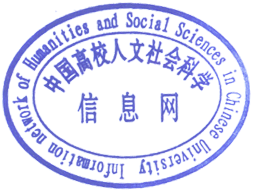关 键 词 :餐桌礼仪;日本文化;神道教;文化现象;学科分类:民族学与文化学--文化学
日本同中国一样,是有着悠久历史的礼仪之邦。日本人对于礼节的重视程度比国人有过之而无不及。日本的餐桌礼仪文化一直以来都是各国学习的典范,我们在去日本旅游,看日剧、日漫的时候不难发现,大多数日本人在进入用餐之前,都会双手合掌,然后满怀感激地说「いただきます」“我开动了”。,又如他们用餐结束后要说「ごちそうさまでした」“感谢招待!”。在当今的社会,日本人视「いただきます」为日语中的明珠,。本篇文章即对这一现象追根溯源,研究为什么日本人用餐前要双手合十说「いただきます」“我开动了”,分析此餐桌文化现象的由来。最后总结并列出了日本餐桌礼仪的其他禁忌和注意事项,有助于我们更了解日本文化,促进跨文化交际。
Japan, like China, is a country of etiquette with a long history. Japanese pay more attention to etiquette than Chinese. The Japanese table manners culture has always been a model for all countries to learn. When we travel to Japan and watch Japanese operas and movies, it is not difficult to find that most Japanese people will clap their hands together before having a meal, and then say with gratitude, "I'm ready"., Another example is that they will say "thank you for your hospitality" after dinner. In today's society, the Japanese regard "Itadakimasu" as the pearl of Japanese,. This article traces back to the source of this phenomenon, studies why Japanese people put their hands together before eating and say "Itadakimasu", and analyzes the origin of this table culture phenomenon. Finally, it summarizes and lists some other taboos and precautions of Japanese table manners, which will help us better understand Japanese culture and promote cross-cultural communication.

